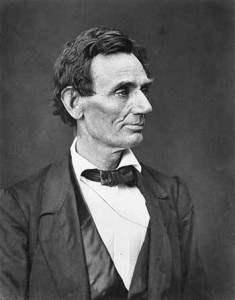Good morning.
It’s a mostly sunny day, with a high of thirty-seven, ahead for Whitewater.
Whitewater’s Tech Park Board meets today at 8 AM.
The agenda posted at the City of Whitewater website for that Tech Park Board meeting is unprofessional and sloppy at best, and legally deficient at worst. Here’s the full text:
MEETING NOTICE
Whitewater University Technology Park Board Meeting Wednesday, Feb 13, 2013 at 8:00 a.m.
Whitewater Innovation Center
1221 Innovation Drive
Whitewater, WI 53190Agenda
1. Call to Order
2. Approval of Minutes from Jan. 16, 2013 Meeting
3. Review/Acceptance of Jan. 2013 Financial Reports – Clapper
4. WUTP Architectural Review Committee Discussion – Telfer & Clapper
5. Innovation Center Facility / Security Discussion – Ehlen
6. City of Whitewater Seed Capital Fund Update – Knight
7. Whitewater Incubation Program (WhIP) Updates – Ehlen
8. Strategic Priorities and Development and Plan
9. Reconvene into Open Session
10. Future Agenda Items
11. Future Meeting Dates Mar. 20, Apr. 10, May 8, June 19
12. Adjournment
Did anyone bother to review and proofread this notice? At best, there’s a stray entry at item 9: “9. Reconvene into Open Session.” At worst, there’s a missing entry for a closed session, somewhere before item 9, that’s been wholly omitted.
The law requires that a closed session be expressly noticed, and that its purpose be expressly stated, under one of 13 possible purposes. Wis. Stat. § 19.84(2), § 19.85(1).
The notice looks like it was dashed off hastily, but there’s no exception for this public body under Wisconsin law for “I didn’t feel like complying,” “I can’t do any better,” or “I’ll tell the public only what I feel like telling them.”
These are clear and simple provisions, and in any event, gentlemen who’ve taken millions in others’ money should be expected to do a bit of proofreading for their publicly-financed undertaking.
If the minimum standards of law and professionalism are too hard, one may always quit the project.
On this day in 1861, America awards the first Medal of Honor to a soldier:
The earliest military action to be revered with a Medal of Honor award is performed by Colonel Bernard J.D. Irwin, an assistant army surgeon serving in the first major U.S.-Apache conflict. Near Apache Pass, in southeastern Arizona, Irwin, an Irish-born doctor, volunteered to go to the rescue of Second Lieutenant George N. Bascom, who was trapped with 60 men of the U.S. Seventh Infantry by the Chiricahua Apaches. Irwin and 14 men, initially without horses, began the 100-mile trek to Bascom’s forces riding on mules. After fighting and capturing Apaches along the way and recovering stolen horses and cattle, they reached Bascom’s forces on February 14 and proved instrumental in breaking the siege.
Also on this day, in 1935, Wisconsin rejects a true market in gasoline for a fixed and arbitrary price:
1935 – Gasoline Price Wars Quelled
On this date, in an effort to stop gasoline price wars, the state of Wisconsin established a minimum price of 16 cents per gallon for gasoline. [Source: Janesville Gazette]
Google-a-Day offers a geography question: “What’s the southernmost province of the country that occupies approximately one sixth of the Iberian Peninsula?”

